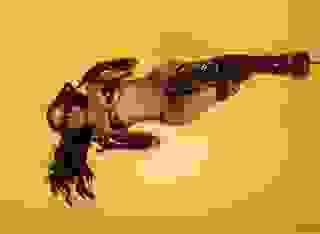Note: You can change font size, font face, and turn on dark mode by clicking the "A" icon tab in the Story Info Box.
You can temporarily switch back to a Classic Literotica® experience during our ongoing public Beta testing. Please consider leaving feedback on issues you experience or suggest improvements.
Click hereWe went through the preliminaries: Ellen wanted to reconcile, and to understand the reasons for what she'd done; I wanted to find out if it would be possible for us to restore sufficient trust for us to stay married; and I admitted that I was skeptical that it could be done. Ellen teared up almost right away, and was given a box of tissues, which she kept on the seat next to her; when she'd gathered a little pile of crumpled tissues in her lap, the good doctor quietly got up and place a small wastebasket next to her.
We just sketched a picture of our marriage and family for her, ending with the outline of the affair. Ellen didn't get into the details of what she'd done, to my great relief, and I stayed calm and cool.
I'm sure it wasn't anything she hadn't heard before, maybe dozens of times; she listened, mostly, and didn't reveal much. She kept a notepad on her lap, but didn't write much down while we were talking. It was a thoroughly professional session. Near the end, when she warned us it was nearing time to finish up, she made individual appointments with each of us, as I'd suspected she'd do. I took that moment to ask her to recommend someone for the girls to talk to, and she said she'd make a list, and give it to me at our individual session. Then it was time to go.
Ellen and I had driven together-she'd picked me up from work-and so we went home together afterward.
"I like her," she said. "What did you think?"
"She seems like she knows her business," I replied.
"Why didn't you sit next to me?" she asked.
"I think you forget sometimes, I'm still really hurt and angry about what you did," I said. "Just because I don't throw it up at you every time we talk, you shouldn't assume that everything's all right."
"I know," she said. "It's just that I can see us with this already behind us, and I want so badly to get there. I see us happy again, and we're both so unhappy now, and I'm impatient to get past the bad stuff and get back to the good."
"Well," I said, "just like I tell my students, there are no shortcuts. This isn't the happiest part of either of our lives, but this is our life, and what it is right now is what it's going to be for the foreseeable future. There's no way therapy can work if you won't face up to the bad stuff, as you call it. You can't wish the future into being, so might as well live in the present."
She seemed not to have anything to say to that, so we rode the rest of the way in silence.
The girls were curious about where I was spending my nights, so I brought them over to see my room one afternoon. Sophie was excited by the newness of it all, and Alyssa was saddened.
"You're not coming back, are you?" she asked, quietly.
"I don't want to lie to you, sweetie," I replied. "I don't know. I want more than anything to be back with you and Sophie, and I do still love your mother, but what happened is too big to try to put a band-aid on it and hope for the best."
"Why did she do it?"
"That's the question. And I'm pretty sure she doesn't have the answer, which is why we're meeting with the therapist."
"Find out soon, Dad. Find out, and fix it."
On my side of things, fixing things with Dr. Drake focused on what to do about the trust that Ellen had shattered for me.
"I stood there and told her that I knew she had been keeping a secret from me. I did everything but beg her to tell me. And she got angry at me!" I was getting upset as I remembered.
"Was it anger, or was it fear?" she asked.
"How do I know? It sounded like anger; like she was the parent, with something important to do, and I was the petulant child, vying for her attention."
"Has it occurred to you that she felt like the misbehaving child, desperate to escape the anger and disappointment she knew she'd see in you, if she revealed her secret?"
"Well, so what? Misbehaving children have to learn to endure the anger and disappointment of their parents, if they want to grow up themselves. And Ellen's not a child. She knew what she was doing. She knew it was wrong to do it, and she knew it was wrong to hide it from me."
"And she has apologized. Do you not think she's sorry?"
"I think she's sorry she got caught. Let me ask you: do you think she's sorry she did it? Because, if she isn't, then what would prevent her from doing it again?"
"You know I can't answer that," she said. "Let me ask you: what prevents you from believing that she's sorry for doing it?"
"Because my rule for believing things I can't prove is to rule out anything I know I wish were true. Would I wish for a benevolent god who would watch over and protect me, and who would grant me a life of eternal happiness, just in exchange for saying I believed in him? Yes. So, since I can't prove that god exists, I can't believe in him, since I could never be sure that my belief wasn't a self-deception."
"So, you're saying that you can't believe your wife is telling the truth, because that's what you wish for?"
"In the absence of proof to a certainty, yes," I said.
"That seems to me an extremely grim philosophy. What's wrong with believing what will make you happy? Why prefer to believe what makes you sad?"
"Because the truth is, in my experience, more likely to make you sad, than otherwise," I replied. "Look, you've probably heard the expression, 'ignorance is bliss,' right?"
She nodded for me to continue.
"What most people don't know is that the poem it comes from is not about the benefits of not knowing the truth; it's about the inevitability of suffering. For Gray-the Englishman who wrote the poem, after seeing a group of schoolboys playing-ignorance is the condition of the child; who, if he survives to adulthood, will inevitably know suffering. Look, if the point of life is to be happy, then all of us ultimately fail; so, either the point of life is something other than what the advertising industry wants us to think, or else we all end our lives having failed to achieve our true purpose."
"You think no one lives a happy life?"
"No, because happiness is not achievable as a steady state. Are you happy right now?"
"Well," she said, "I . . . I'm not unhappy. I'm doing my job, and that makes me happy."
"Bullshit," I said. "What you are right now is uncertain. I've challenged you by espousing an idea that you don't really like, and would rather not accept, but you aren't quite prepared to reject it. And that ability-to hold an uncomfortable idea in mind, and to live with it, and to think it through-that is one of the two things we can do to achieve our full purpose, as human beings. It's something no other animal on earth-no other living thing, as far as we know-is capable of."
"And what's the other?" she asked.
"To love another person more than you love yourself," I said. "And if that were commonly a route to happiness as a steady state, then you'd be out of that job that makes you so happy."
She gave me the names of two child psychologists whom she recommended; more people to call. It occurred to me what an industry divorce has become. At least, I thought to myself, I was doing my part to support the local economy.
The next week we had our session together. Dr. Drake had warned me that Ellen wanted to explain what she thought were the reasons for the affair. I had made it clear to both of them that I had no interest in listening to her justify her behavior, but this seemed to be a case in which what she wanted to say outweighed what I wanted to hear.
We got the expected ground rules: no accusatory statements, wait your turn and don't interrupt, define your own behavior, but not the other person's, etc. Ellen got to go first, of course.
It took her a few false starts and "I'm sorry's" before she settled on what she wanted to say. "He paid me some attention, and I guess I let him see that I liked it," she began. "It's not that you were neglecting me, but it was nice to hear it from someone . . . a man . . . who saw me as an attractive woman, not as a wife or mother. He's younger, handsome, he dresses well . . . and, when he saw that I liked his compliments, I guess he decided to turn up the charm. I'm not making excuses-I knew it was wrong, but I thought I could handle it. But before I knew it, I was looking forward to seeing him, and he started getting physical-touching me, then kissing . . ." At that point she looked up at me and trailed off. I guess she could read pretty clearly what I was feeling from how I looked.
I clenched my fists, swallowed hard, then looked at Dr. Drake, who nodded at me to indicate it was my turn.
"I don't know what you want me to say," I said to Dr. Drake. "That I understand? Sure; would I like it if an attractive, younger woman started paying me compliments? I know from experience that I do-it's not always the old professors who pursue the young graduate students, I can tell you-but I always made it clear that I wasn't interested; it's not that hard to do. It seems to me that if you love your wife-or your husband-you don't forget to protect them. I certainly know that when a young woman is smiling at me and touching my arm, and telling me what a great genius I am, that what she's doing is dangerous to my relationship with Ellen, if I choose not to stop her. And I've never failed to be clearheaded about that, even when they've been really tempting. And I don't see myself as a paragon of virtue. I just know where my loyalties lie." I stopped and let the accusation form itself in their minds: and Ellen didn't, and that's why I can't trust her anymore.
Ellen said, "I never failed in my loyalty to you-" Here I snorted, and got a look from Dr. Drake. "I was never anywhere near emotionally involved with Rob. We never discussed you. I was never any less affectionate or available to you while we were . . . I'm not saying it wasn't wrong; I know it was. But it didn't affect my love or respect for you. If anything, it made me appreciate you more, because I know that he is not and never will be anything like the man you are."
I waved my hand at her to indicate that I wanted to speak, and she stopped. "I don't believe you, Ellen. You have to know the things you've said are what I'd want to hear, and you have to know that I know that you might be saying them just to reassure me-and not because they're true. I will say that you're lying to yourself if you truly believe that your . . . affair didn't affect your love and respect for me-"
"It didn't!" she cried. She sniffled and took a tissue from a box on the coffee table in the middle of the circle, then held it to her nose and stared at her lap.
"I was deliberately deceived," I said, again to Dr. Drake. "My wife conspired with another man to establish and maintain an ongoing sexual relationship, giving to him the time, energy, and, most of all, affection that she had promised to give only to me. She admits that she knew it was wrong, and the reason she lied about it is that she knew I would object. The lying was clearly done in an effort to control me-to keep me from stopping her from doing what she was doing, as she knew I would if she had been honest with me. That is not how you treat someone you respect. I won't say that I think she enjoyed lying to me, but I do think that part of the excitement for her was breaking the rules, and lying to me was part of that; I do suspect that exercising some negative control over me was probably thrilling to her, too, although I doubt she would ever admit it. I believe that she wanted not to hurt me. She obviously didn't want it badly enough to prevent her from having an affair, but she didn't throw her infidelity in my face, and she's clearly upset to see how finding out has hurt me. That's something, but I don't think it's enough. I don't want to punish her, but I don't want to punish myself, either, by living with someone whom I can never be sure I will ever fully trust, or respect, again. And I don't think she should want to live with someone who can't love her unreservedly."
Nobody said anything for a minute after that, so Dr. Drake prompted Ellen.
"If you will just give me a chance," said Ellen, "I'll show you. You'll see. I won't have to say it. You have to know that I would never try this again. I swear to you, having faced the horror of losing my family, I will never do anything that might remotely jeopardize our marriage. Just give me that chance, Dan, please."
"You don't know how much I want to," I told her. "But what if what you've learned is not to not do it again, but rather to do it again more carefully? You got away with it for quite a while before I caught on. I've already told you that I won't consent to check up on you; I won't live like that. So you'd be free to deceive me again. And, even if you never did, there's nothing you could do to erase all doubt in my mind. Every time you were late getting home from work, every time I had to go out of town to a conference, a part of me would wonder, is she meeting a man? That was always a possibility, of course, but the difference is, I never believed you were capable of it. Now we both know that you are."
"I'm telling you, I'm not capable of it, not anymore," she said. "I literally could not. I am changed, Dan. The old Ellen could do it, because she couldn't imagine the consequences. I don't have to imagine them; I'm looking right at them, and I'm sick, and terrified. The new Ellen will be a better wife to you than the old one ever was. You're trading up, and all you have to do is to give me a chance. You can still divorce me after a year, if you want. What will you have lost? And think of what it would mean to have just one more year as a family."
She knew where my weakness was; I'll give her that. "I'll think about it," I said.
"You do that," she said, and smiled at me. She had just finished crying, so it was really more of a grimace than a smile, but I could see that she meant it.
Dr. Drake said, "I'd like to go back to something I heard earlier. Ellen, you said that you liked it when Rob saw you as an attractive woman, not as a wife or mother. And Dan, you said that your women students sometimes let you know that they see you as attractive, and, while you like it, too, you aren't as tempted as Ellen apparently was. Ellen, how often do men come on to you the way Rob did?"
"Rarely," she said, "And none at all in the last few years. That's probably at least partly because I'm no good at flirting, not that I want to be." She looked at me nervously.
"Dan," Dr. Drake turned to me, "would you say you're pretty well recognized in your field? You've written articles and books; presumably there are anthropologists across the country, and even in other countries, who know your work, and respect it?"
"I'd like to think so," I said, wondering where she was going.
"Well, what do you think of the possibility that what Ellen was seeking from her relationship with Rob wasn't sex?" Dr. Drake continued. "What if it was recognition that she craved? That is, to be seen as special by someone outside of her normal circle of family and friends? To get that, she had to give Rob what he wanted, which was sex. I'm not excusing or diminishing the infidelity; she's admitted that it was wrong, and she knew it. But I wonder if it's possible that you failed to appreciate the importance of something that you take for granted, Dan, and maybe to see how much Ellen needed it, without realizing it."
"Assuming you're right," I said, "where does that leave us? Are you saying she may do it again, if she needs a little more 'recognition'?"
"Not at all," she replied. "I think that we can find other ways for Ellen to satisfy her need to be 'seen' by new people, without falling into bed with them."
Ellen spoke up. "It's true; you know, a woman gets to be a certain age, and she just seems to become invisible to everyone, except her family and friends. I mean, I meet people through work all the time, and they talk to me, and they appreciate what I do, but I feel like as soon as the job is done, I cease to exist for them; I doubt many of them even remember my name."
"But you still enjoyed the sex, right?" I asked. It was ungenerous, I know.
"I won't lie," Ellen said. "I did."
"Tell me," I said, looking at her hard.
"I don't know-" Dr. Drake tried to intervene.
"I thought you didn't want to know," said Ellen, pleadingly.
"I thought so, too, but now I think I need to hear it."
Dr. Drake said, more forcefully, "Now is not the time."
I looked at her and said, literally as I was realizing it: "She has another secret. There is something else she didn't tell me, and you knew, you both knew . . ." Something was welling up from deep inside my mind, and I stopped talking, and put my head in my hands to let it come to the surface.
"Dan-Dr. Tucker-" I heard the therapist's voice from what seemed like far away.
And there it was: "He made you come. He made you come with his magic dick." It wasn't a question; I knew.
"Yes, oh, no, no, his dick wasn't magic," Ellen was crying.
A little background: neither Ellen nor I was a virgin when we met, and our first coupling was vigorous and enthusiastic. When it was over, I knew she hadn't come, but also knew better than to ask for reassurance; I'd had enough partners to know that it didn't happen for every woman, every time. But I guess she realized what I was thinking, so she just came out with it, in a very matter-of-fact way: "I don't come from vaginal sex."
"How about oral?" I asked.
"Why don't you try to find out?" she said, smiling at me.
I guess I should also say here that I don't have any qualms about eating a pussy after I've come in it, especially a pussy I liked as much as I liked hers. It's not a fetish (and no, I never have and never hope to eat some other man's come out of a woman's pussy); it's just not a big deal. She responded, pretty quickly, with an orgasm that arched her back and locked her thighs around my head for a moment. Fortunately, she released me before I passed out from lack of oxygen.
"You'll do," she said.
Maybe it should have bothered me more, but she never had to ask me to get her off, and she never complained or seemed to mind, so I just accepted it.
Ellen brought me back to the present, saying, "He took it as kind of a personal challenge, when he couldn't make me come the first couple of times we were together. He kept trying different positions, different angles. I was on the point of telling him to stop trying, when, the third time we were together, he found the right angle, and the right rhythm. We both knew I was going to come. It was exciting, but the orgasm itself was nothing amazing. And he didn't do it because he loved me; it was all about him, and his male ego."
"I think I'm going to be sick," I said. "Where's your bathroom?"
Dr. Drake directed me to a door opposite the one we'd come in through. By the time I had the light on and was facing the toilet, my nausea had passed, replaced with the most physical form of sadness I have ever felt. Every cell in my body seemed depressed.
I rinsed my face and dried it with the towel next to the sink, then went back to face them.
"I'm done," I said. "I don't know right now if it's just for today, or for good, but I've had all I can take, and Ellen, I can barely stand to look at you. Please tell the girls I'm sorry, but I won't be at the house for dinner tonight."
Dr. Drake asked, "Would you like to stay after Ellen leaves, and talk about what happened? I don't have another patient immediately following this appointment."
"No," I said. "I know you're professionally bound to keep her secrets, so I can't blame you for not telling me, but I don't want to talk to you right now, either. If I decide to cancel my next individual appointment with you, I'll let you know."
I was really glad I'd come from school and had my car; otherwise I'd have had to stand at the curb and wait for an Uber, who would probably be some college kid who'd want to chatter at me. Being alone inside two tons of glass and steel doesn't make you feel like less of a pathetic loser, but it does make you feel invisible, and I was grateful for that small mercy.








